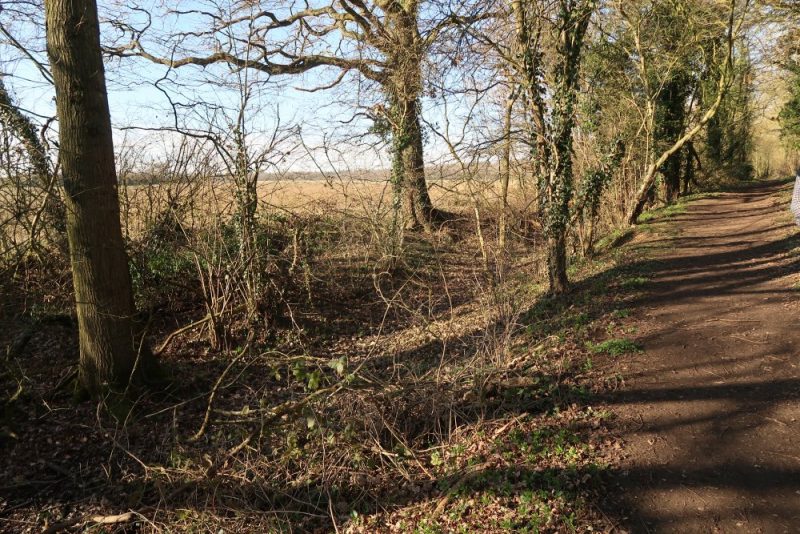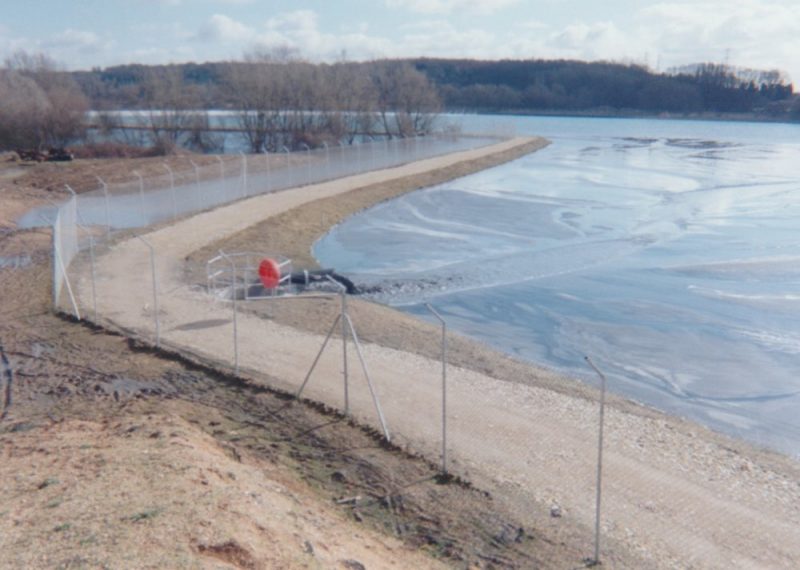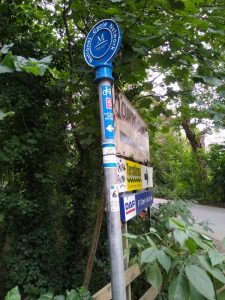Click on an image to see a larger version, which will open in a new window.
Radley Large Wood, which once covered about 100 acres, lies at the northern end of Radley off Sugworth Lane. The brook that forms its northern boundary was mentioned in an Anglo-Saxon charter from the 10th century. The wood’s rounded shape is characteristic of its original use as a deer park (from at least the mid-13th century); parts of the bank enclosing the deer park are still visible where the wood runs alongside Sugworth Lane. For more about the wood’s use as a deer park see Chapter 3 and Annex A of the Radley History Club book, Radley Manor and Village: a thousand year story.
Today the wood is designated by Natural England as Ancient & Semi-Natural Woodland. It contains mixed species of oak, ash, lime, beech, birch and hazel, with a number of veteran oaks. Within the original area of the wood there are now three mobile home parks – Bigwood, Pebble Hill and Woodlands.
Radley Lakes
Photograph from the Radley History Club archives
Much of Radley overlies gravel deposited during the Ice Age. Excavation of this rich seam of gravel started in the 19th century and small gravel pits were dug in several places to provide material for the local roads and tracks. Commercial extraction starting in the late 1940s resulted in a series of large quarries on either side of the Oxford–Didcot railway line. The disused quarries flooded naturally and some were filled in with flyash pumped from Didcot Power Station. Today there are four lakes (Thrupp, Bullfield, Longmead and Orchard). In 2008 a three-year campaign by the ‘Save Radley Lakes’ group succeeded in rescuing the largest, Thrupp Lake, from the threat of also being filled with flyash.
Over the years the lakes, and the surrounding land, have become an attractive haven for many species of wildlife. The Radley Lakes Masterplan for the area’s future is being implemented by a charity, The Radley Lakes Trust.
Sustrans National Cycle Route 5
The section through Radley is part of the Hanson Way (Oxford to Didcot), one of the routes making up National Cycle Network cared for by Sustrans. It follows the old railway line from Abingdon to Radley, entering the village from Thrupp Lane. From here it goes along Whites Lane and Kennington Road, before leaving Radley at Sandford Lane.
Back to More about Radley and its heritage
More information about points of interest (1-13) on the walk from the pub to Radley College
More information about points of interest (14-24) on the walk from the pub to the Thames


